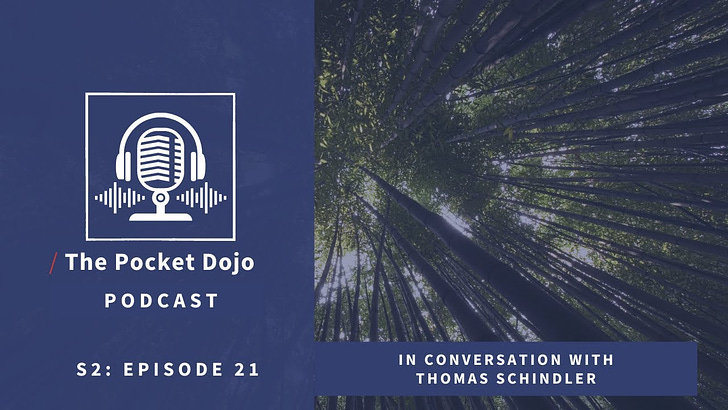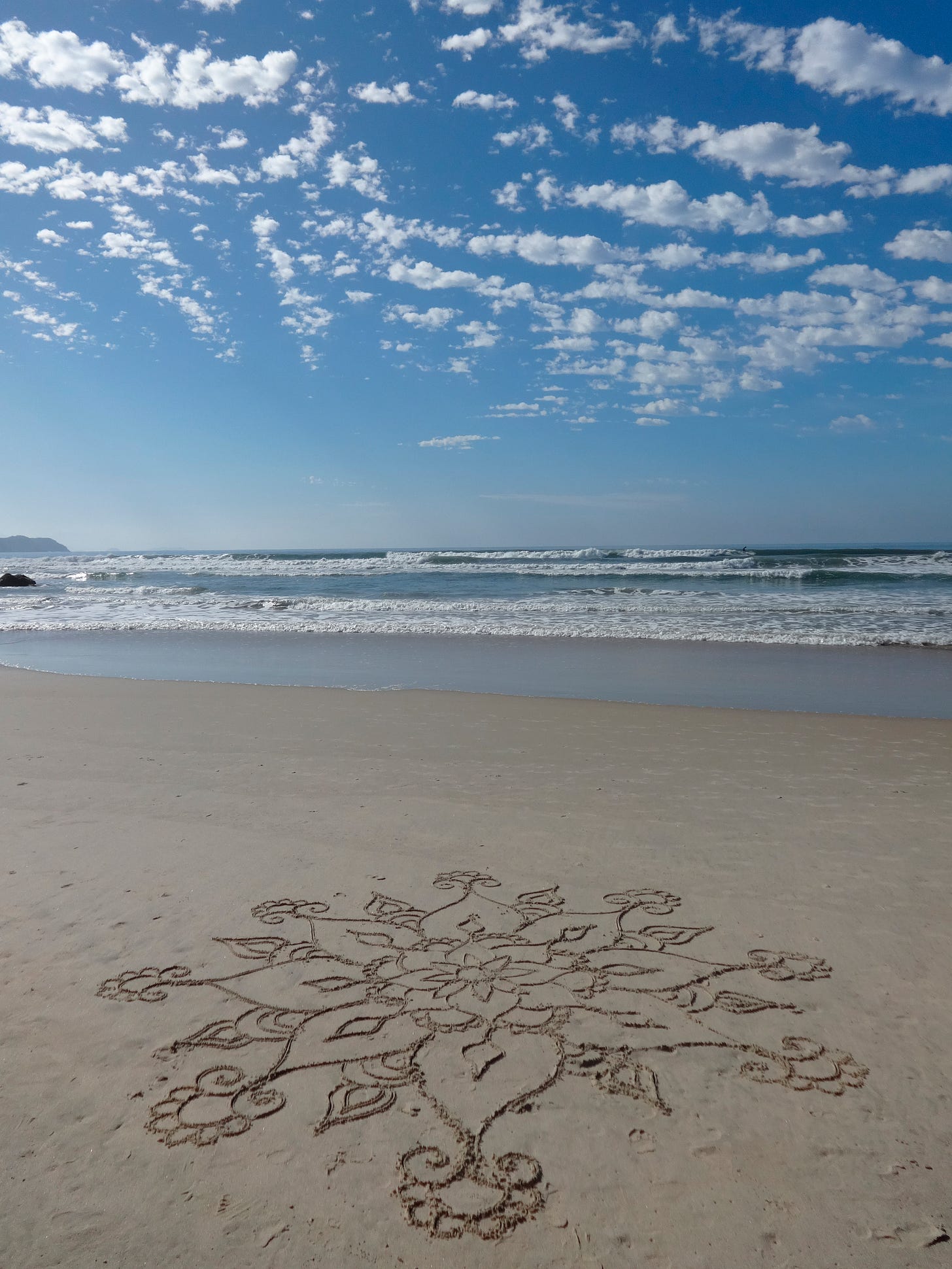The Pocket Dojo episode #20: In Conversation with Thomas Schindler
Transforming who we bring of ourselves and what is possible between us, to be in service to life
I love people - and conversations with them - who surprise me. That gets harder as we get older and greyer (wiser? more cynical?), or at least it does for me. But Thomas Schindler is one person who keeps on surprising me and expanding my own sense making and what I am therefore willing to engage in. It’s a wonderful gift, in a whole variety of ways.
In today’s conversation, we begin at with a short story about Thomas’ unusual upbringing. Born in California to natural scientists and raised in Europe, he kept quiet about his aspirations to be a rock star. I think he became one, albeit one of a different kind from his childhood dream! Those early desires certainly seem to have shaped his fresh, original outlook on life and where he chose to put his energy.
Thomas invites us to reflect on how to make a impact that feels meaningful in a world that can easily overwhelm us. And how that once we are able to accept that we may not directly benefit from or even see the results of our efforts, they are nevertheless part of a larger tapestry that we need to weave for future generations. This reminder has been of great value to me personally, in regenerating my own life and work. It is essential for holding the line through the storm of challenges that we inevitably meet on the way as we bring our own purpose to life.
He encourages us to focus on our ‘radius of effectiveness’, in other words on what is realistic for us to achieve with what we have available, and where we can therefore find our agency. I share that approach, which offers us the possibility of recognising and celebrating small wins as we go, and the flexibility that is necessary for rapid adaption to changes that are evermore reality for all of us.
Chapters
00:00 Introduction
02:47 The Conflict of Aspirations
05:10 The Helio-Centric Civilisation Concept
11:46 The Importance of Vulnerability
17:06 Central Bank of Dreams Concept
24:03 The Challenge of Transitioning to New Systems
26:40 Radius of Effectiveness
32:23 Challenges in Systems Change
44:23 Liberation Through Community
Community features a lot in our conversation, both as a ‘container’ for our own particular skills and resources and somewhere that we can work on shared goals together. We talk about existing communities like villages, not the US West Coast predilection for intentional groups. Having lived in both, I also advocate for the first, so that we can put our resources together easily and work for the greater good of the commons, even at a small scale. Naturally, relationships are key and certainly a focus for me in the near future.
In wishing to make a worthwhile contribution, also for future generations, it is likely that we will need to get involved in extensive systemic change. It is not easy work, requiring skills and resources we may not have simple access to. Our current economic system does not help, as it prioritises profit over real grassroots impact and there is insufficient social fabric to ensure funding reaches where it is most needed on the ground. That situation is changing however, as more and more people realise both the tipping points we are close to and the limits of capitalism as the way to organise ourselves effectively. Systemic transformation is therefore crucial work and provides us with the opportunity - and necessity - to be in in service to life.
Thomas also shares his own experience of setting up a software company from which most of the revenue and profit is directed towards funding different initiatives for creating a relational gift-based economy. I talked with him in more depth subsequently about this way of thinking and doing, which we have taken to heart and are bringing to our new regenerative business. It creates deeply rewarding work that goes far beyond something we do just for money. We are making the most of other kinds of capital than financial and bootstrapping ourselves as we go. I’ve rarely been so engaged in anything.
From here, Thomas and I talk about the nature of money and its importance in our lives in more depth. As climate change and other major risks gain momentum, it will become more and more necessary that we are willing to invest financial capital into environmental, social and cultural transformation, without an expectation of similar returns. Without this awareness and willingness, money cannot flow to where it is needed, and the world cannot flourish. Just those who have the most. We also reflect on how true abundance comes from other things than accumulation of wealth - relationships, belonging and shared meaning. We invite our audience to explore what the lives you would like to live would look and feel like, and how you can align your many resources with that ideal vision.
Thomas then shares his hope that humanity will recognise the interconnectedness of all life and connect with the wisdom of nature and our potential. Both he and I believe that despite all the highly entangled and complex challenges we face going forwards, it is still possible to create a flourishing, harmonious existence, together. Many small actions contribute to large, powerful movements which can bring about positive change.
And we bring our lovely conversation to a close with Thomas’ ‘unloading’ practice, where he writes down his thoughts and feelings, then destroys them. Through this powerful technique, he is able to have a deep, honest conversation, also within himself, where no one is judging and he can feel free afterwards.
I also ask him about what he might like to still work on in himself, to which he answered to be more patient and satisfied with what is in the present moment. He touches on how it can be a struggle to balance ambition and contentment. I know I can relate. Can you?
‘I’d rather be dead than singing ‘Satisfaction’ when I’m 45.’
Mick Jagger
Thank you Thomas for your authentic, generous sharing for the podcast. It’s always a pleasure to talk with you.
To find out more about Thomas’ work, please see:
Thanks for watching!




